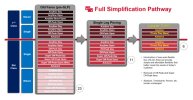One of the main points of this excerise is to get away from the concept of "(off) peak".How about calling them:
Flexible - booked only
Semi Flexible - Travel on any train within 70 mins of purchase (excluding peaks)
Anytime - Any service of the day
To be fair, I think (Super) Off Peak is fine as a concept (the DfT clearly disagree) however the idea that you would have a 70 minute ticket that has additional exclusions for "peaks" would be the worst of all worlds!
LNER/DfT want more people to be on Advance as it enables them to shift demand from busier to less busy services; it's also a good earner when people take the "wrong" train.What will be interesting is how many off peak users move to advance or semi-flex or stop travelling altogether.
Semi-flex is also probably seen as a nice earner for people who worry about the high cost of taking the "wrong" train and pay the extra, which they probably won't need, as an insurance policy.
DfT will want some people to stop travelling altogether as this reduces the burden on providing additional capacity. If prices were as cheap as they are in other countries, then there would be a huge capacity problem; our pricing is very much about pricing people off the railways.
Exactly; it's like paying for an insurance policy up front which you probably won't need. But it's nowhere near as flexible/useful as (Super) Off Peak is/was.Semi flex just guarantees flexiblity if you miss a service but not if you want to travel a few hours later say.
Looks like DfT are succeeding in their aims to get public support for what many of us see as an awful scheme.I think this new system is fine although it does reduce some flexiblity but still doesn't reduce complication of fares.
Agreed, most won't. But if just some do, they are earning a lot of extra money. If some don't travel then that's less additional capacity to cater for. Overall this is designed to benefit DfT/LNER. Not passengers.I suspect a few will move to anytime as well but most won't.
For simple-minded people, the Ryanair style pricing is simple. But for anyone who has any intelligence or experience of rail, the concept of (Super) Off Peak isn't actually difficult to understand.How is that any simpler than an off-peak ticket?
I agree with you that this isn't really any simpler, but simple-minded people will be hoodwinked by this.
I agree.Most passengers understand the limits of an off-peak ticket, who is going to research this new ticket.. I can see many people getting caught out by this..
CorrectAlso, that implies that the only walk up fare now will be anytime tickets.
That's how DfT want it.What a way to penalise people with uncertain travel plans
To be clear, you can change using the LNER app if you want, but there is no requirement to do so as the ticket is valid plus or minus 70 minutes, without any need to make a "change".The BRFares page is quite interesting. It reads like the idea is that you should use the LNER app and change your journey to use the flexibility, and it'll offer a £0 change if it meets the requirements but a chargeable change if it doesn't.
Last edited:


